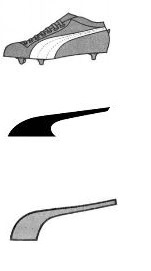Trademark agency Abcor - protect your trademark
Contact
If you have questions or want to know more about our services?Please mail: info@abcor-ip.com
Please call: 31 (0)71 576 3116
John de Mol demands a ban on the use of his name or face, for which he has not given permission. He claims that Facebook should act actively to prevent this.
Many victims of this scam have reported to the online Fraud authorities, who estimated the damage caused by these fake advertisements at 1.7 million euros. Facebook's argues that it is not responsible for this. They claim that they’re just a neutral online channel and therefore not liable for fraudulent ads on the platform (the so called safe harbor defense).
Court does not agree with this especially taking into consideration the active role of Facebook in selling sell ads on Facebook and Instagram. Facebook appealed the decision. Wondering who will support John de Mol, because now fraudulent Bitcoin ads are appearing on Facebook portraying other celebrities. (Source image: fake ad on Facebook)
social-media
